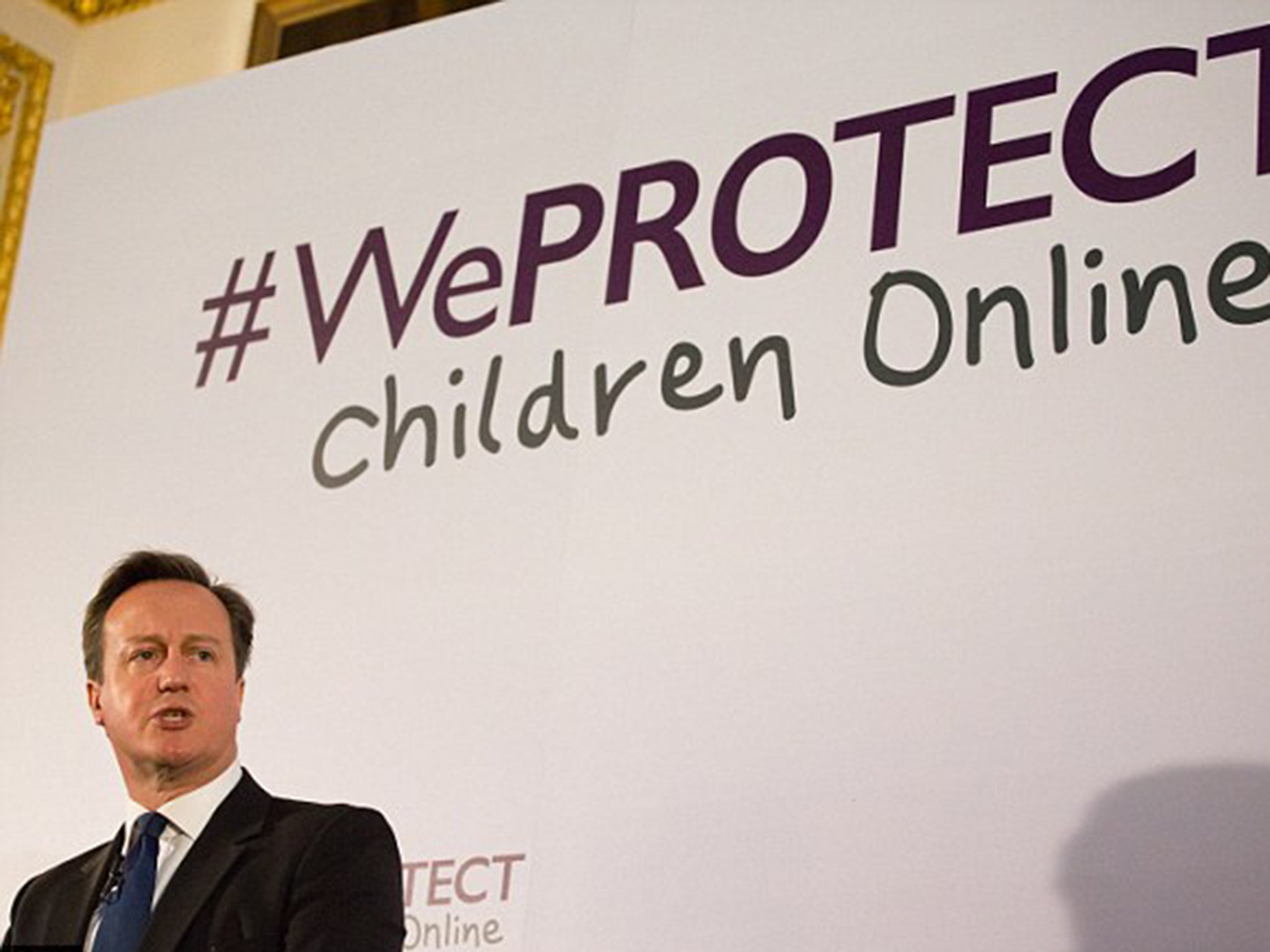‘Thousands of children at risk of internet grooming’ as Government breaks promise on new law
Exclusive: Almost two years after David Cameron vowed to act, legislation to outlaw sexual communication with a child has still not been implemented

Your support helps us to tell the story
From reproductive rights to climate change to Big Tech, The Independent is on the ground when the story is developing. Whether it's investigating the financials of Elon Musk's pro-Trump PAC or producing our latest documentary, 'The A Word', which shines a light on the American women fighting for reproductive rights, we know how important it is to parse out the facts from the messaging.
At such a critical moment in US history, we need reporters on the ground. Your donation allows us to keep sending journalists to speak to both sides of the story.
The Independent is trusted by Americans across the entire political spectrum. And unlike many other quality news outlets, we choose not to lock Americans out of our reporting and analysis with paywalls. We believe quality journalism should be available to everyone, paid for by those who can afford it.
Your support makes all the difference.A law to tackle internet grooming of children has still not come in to force almost two years after it was promised by the Government, The Independent can reveal, leading to warnings that thousands of young people are being put at risk.
The NSPCC condemned ministers for an astonishing 19-month delay in implementing the laws, which were announced in a high-profile child protection drive in 2014. The charity believed it had won a campaign – to make it illegal for an adult to communicate with a child for the purpose of sexual gratification – when it won the personal backing of David Cameron.
The former Prime Minister spoke powerfully in December 2014 about his fears for his own children online and the legislation was passed – just weeks before the last general election – in March 2015.
However, the “commencement order” needed to implement the law and close the loophole has never been triggered, to the growing anger of campaigners. Ministers have refused to explain the delay but, in a recent parliamentary answer on the subject, one suggested there were “other justice priorities”.
Peter Wanless, the NSPCC’s chief executive, said: “The Government cannot afford to dawdle over something as essential as keeping young people safe from those who want to prey on them.
“The police and public have spoken, and the Government said that they had listened. Now it is high time that they stopped dragging their feet and brought this law into effect.”
That criticism was echoed by Labour MP Helen Goodman, a campaigner for stricter controls on children seeing internet pornography. She tabled the parliamentary question demanding to know why Section 67 of the 2015 Serious Crime Act had not been enacted.
She said: “The Government's failure to implement this change agreed by Parliament on a cross-party basis is incomprehensible.
“Every day of delay, eight more children are groomed online. A two-year delay could mean thousands more children are caught up in this distressing and dangerous cycle.”
In December 2014, Mr Cameron used a summit with internet firms to promise the new criminal offence of sexual communication with a child.
The then-Prime Minister said he recognised the loophole that allowed paedophiles who solicit explicit pictures of children to escape punishment if it cannot be proved they have received an illegal image.
The new law would allow police and prosecutors to pursue those who send text messages or “fish” for victims online irrespective of the outcome of their behaviour, he pledged.
Mr Cameron vowed: “There can be no grey areas here. If you ask a child to take their clothes off and send a picture, you are as guilty as if you did that in person.
“Just as it is illegal to produce and possess images of child abuse, now we are making it illegal to solicit these images too.”
The new offence would include activities such as talking about sex to a child via a chat room or social network, or sending sexually explicit text messages to a child, as well as inviting a child to communicate sexually.
It was recognised that existing legislation failed to recognise the nature of grooming, where an abuser aims to flatter the child rather than sending indecent or offensive messages.
Prosecutors had to use the Sexual Offences Act 2003 to pursue online paedophiles – but that involved showing they had incited some kind of sexual activity by a child, such as posing for naked pictures.
Ms Goodman pointed out that the new law is already in force in Northern Ireland and Scotland, where it has triggered a large number of potential prosecutions.
In just one 12-month period, the NSPCC’s ChildLine service carried out almost 400 counselling sessions with children about online grooming, a number on the rise sharply.
The charity uncovered evidence from police forces that the internet is used in eight cases of child sexual abuse every day, including online grooming and live-streaming.
Questioned by The Independent, the Ministry of Justice refused to say why the order had not been implemented, even after 19 months.
Instead, it pointed to the answer to the recent question, in which justice minister Oliver Heald stated: “The Government remains committed to commencing section 67 of the Serious Crime Act 2015.
“We are continuing to consider its implementation carefully whilst also considering our other justice priorities.”
Join our commenting forum
Join thought-provoking conversations, follow other Independent readers and see their replies
Comments